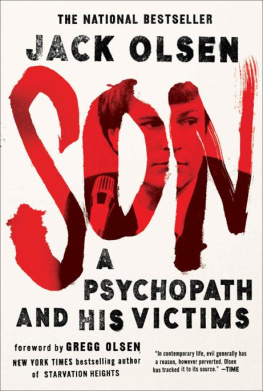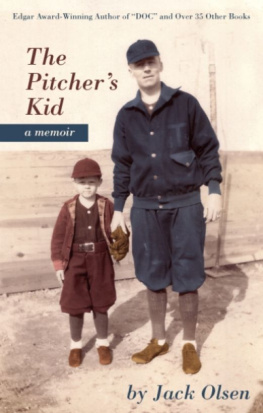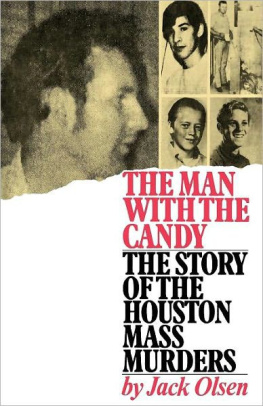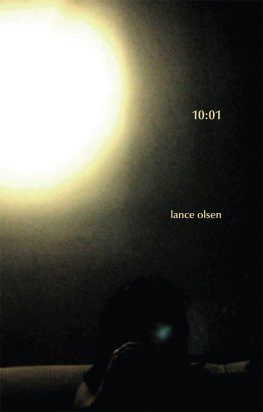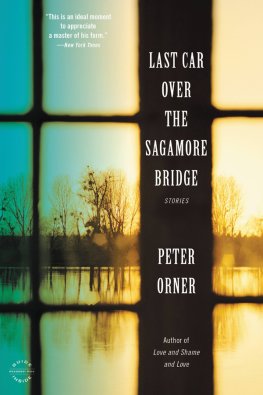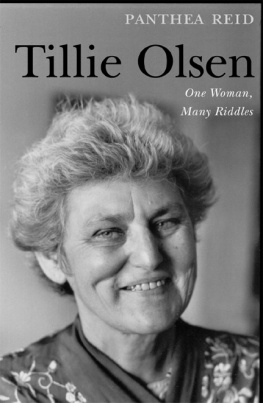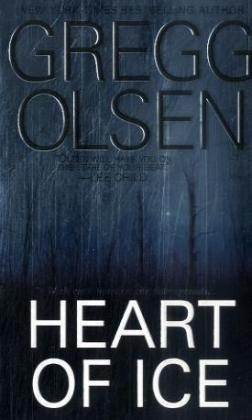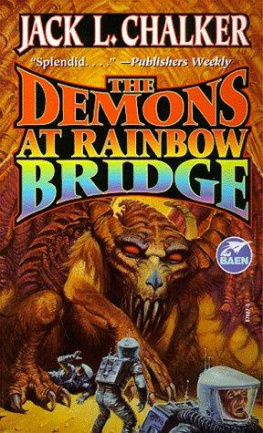Jack Olsen - The Bridge at Chappaquiddick
Here you can read online Jack Olsen - The Bridge at Chappaquiddick full text of the book (entire story) in english for free. Download pdf and epub, get meaning, cover and reviews about this ebook. year: 2014, publisher: Crime Rant Classics, genre: Non-fiction / History. Description of the work, (preface) as well as reviews are available. Best literature library LitArk.com created for fans of good reading and offers a wide selection of genres:
Romance novel
Science fiction
Adventure
Detective
Science
History
Home and family
Prose
Art
Politics
Computer
Non-fiction
Religion
Business
Children
Humor
Choose a favorite category and find really read worthwhile books. Enjoy immersion in the world of imagination, feel the emotions of the characters or learn something new for yourself, make an fascinating discovery.

- Book:The Bridge at Chappaquiddick
- Author:
- Publisher:Crime Rant Classics
- Genre:
- Year:2014
- Rating:5 / 5
- Favourites:Add to favourites
- Your mark:
- 100
- 1
- 2
- 3
- 4
- 5
The Bridge at Chappaquiddick: summary, description and annotation
We offer to read an annotation, description, summary or preface (depends on what the author of the book "The Bridge at Chappaquiddick" wrote himself). If you haven't found the necessary information about the book — write in the comments, we will try to find it.
The Bridge at Chappaquiddick — read online for free the complete book (whole text) full work
Below is the text of the book, divided by pages. System saving the place of the last page read, allows you to conveniently read the book "The Bridge at Chappaquiddick" online for free, without having to search again every time where you left off. Put a bookmark, and you can go to the page where you finished reading at any time.
Font size:
Interval:
Bookmark:

THE BRIDGE AT
CHAPPAQUIDDICK
Jack Olsen
Copyright 2000-2014 by Jack Olsen
Crime Rant Classics
Cover design by Vixer Ching
Book interior design and eBook formatting by BEAUTeBOOK
No part of this publication may be reproduced, stored in a retrieval system, or transmitted, in any form or by any means, electronic, mechanical, photocopying, recording, or otherwise, without the written permission of the authors.
J ack Olsen is the award-winning author of thirty-three books, which have been published in fifteen countries and eleven languages. Olsens journalism earned the National Headliners Award, Chicago Newspaper Guilds Page One Award, commendations from Columbia and Indiana Universities, the Washington State Governors Award, the Scripps-Howard Award and other honors. He was listed in Whos Who in America since 1968 and in Whos Who in the World since 1987. The Philadelphia Inquirer described him as an American treasure.
Olsen was described as the dean of true crime authors by the Washington Post and the New York Daily News and the master of true crime by the Detroit Free Press and Newsday. Publishers Weekly called him the best true crime writer around. His studies of crime are required reading in university criminology courses and have been cited in the New York Times Notable Books of the Year. In a page-one review, the Times described his work as a genuine contribution to criminology and journalism alike.
Olsen is a two-time winner in the Best Fact Crime category of the Mystery Writers of America, Edgar award.
N ature hates monopolies and exceptions. The waves of the sea do not more speedily seek a level from their loftiest tossing than the varieties of condition tend to equalize themselves. There is always some levelling circumstance that puts down the overbearing, the strong, the rich, the fortunate, substantially on the same ground with all others.
...The farmer imagines power and place are fine things.
But the President has paid dear for his White House. It has commonly cost him all his peace, and the best of his manly attributes.
Ralph Waldo Emerson, Compensation
Chappaquiddick
O n most respects, the incident was trivial. It involved the death of a nice girl, but nice girls die every day and this particular oneimpeccable as her moral pedigree might have beenhad nothing to commend her to the special attention of history. For that matter, the man most closely involved in the incident with her also appeared ordinary in most matters. Certainly he was not reputed to be an intellectual giant, an egghead. His own name, Edward Moore (Ted) Kennedy, was not closely associated with any cultural or scientific advances, nor had he made any significant contributions in the areas of statesmanship or diplomacy. There was, nonetheless, a touch of noblesse oblige about him. He was that rarest of noblemen: a future king in a land that had purged kings. For millions of people whose daily lives were lacking in any semblance of high romance or grandeur, he satisfied deep anachronistic longings: to bow before purple robes, to idolize, to lift up and carry above the heads of the mob, to cheer and cheer.
Once in Massachusetts an opponent had charged publicly that the young Kennedy had never worked a day in his life, and the next morning a laborer with a twinkling Irish smile told the crestfallen young candidate: Teddy, me boy, you havent missed a thing. The election was a runaway. The opponent learned too late that Edward Moore Kennedys appeal was precisely that he had never worked a day in his life; neither had Henry V nor Arthur of Camelot. Willy-nilly, the Kennedys and their assassins had brought Shakespearian majesty and tragedy to a political process that had been producing too many tawdry, money-grubbing pols, squirting their fountains of brown tobacco juice and accepting their white envelopes from the private interests. None could ever accuse this new nobility of such base behavior. From the patriarch, Joseph Patrick Kennedy Sr., former ambassador to the Court of St. Jamess, to the youngest prince, affectionately known as Teddy, they gave their public salaries away or worked for nothing. What a contrast they made to the pols of the smoke-filled rooms.
But was there more to the Kennedys than this appearance of noble honesty and correctness? Under their regal sheen, did they have a major offering to make to the country that had given them the opportunity to go from the shanty to the White House in three generations? Passionate partisans argued that the family had made contributions and established standards that would be recorded in later days as historically crucial, but others argued that the evidence for such a conclusion was slight. They pointed to the patriarch, Joseph Sr., a man almost completely out of step with the times through the later years of his life. His firstborn son and namesake, Joe Jr., was pulverized in a mid-air explosion in World War II, leaving behind only a minor record in the Massachusetts legislature. Nor was John F. Kennedy. President John, as his youngest brother called him) vouchsafed the time to make the contributions of which he seemed so capable, with personal charm and courage and intelligence that made him stand like a giant in the gallery of modern Presidents. Robert F. Kennedy, after a promising career as Attorney General of the United States and Senator from New York, had barely stumbled on his role as champion of the oppressed when he was cut down in Los Angeles.
Had the Kennedys made major contributions to American statesmanship? The question could not yet be answered, for one Kennedy remained. He was the repository of all the potential, all the promise, that had been conspicuous in the Kennedy brothers from Joe Jr. on. He was the littlest brother, the one who had done the least, the one whose record had been tarnished by a few childish peccadilloes. But he was a Kennedy nevertheless. What is that? his astute brother-in-law, Stephen Smith, had asked. A legacy? Partly myth, partly great expectations? And even while he was saying it, he must have known that it was both myth and great expectations, and that Ted Kennedy would be expected to fulfill them.
For a time, the young senator denied the role, but then one day he left his house of mourning and announced that he was picking up the fallen standard. It was not necessary to proclaim publicly that he was running for President, nor that he would be elected. It was as preordained as the coronations of the Henrys and the Edwards and the Georges who had followed themselves century after century in England, regardless of their aptitude or their qualifications. No one dared question their capabilities, and few questioned Ted Kennedys. The handful of observers who said he appeared immature and unqualified for high office were brushed aside. His courtiers pointed to his steady record in the Senate, neglecting to point out that the Senate is a place where ones qualifications or lack of them can easily be obscured, and where certain political bandits had hidden out for decades. Few took the time for an unbiased study of the youngest Kennedys public record. He had the name; the name would suffice.
Then one night he went for a ride on a lonely island called Chappaquiddick, and suddenly his maturity and his intelligence were being called into question, and not only by hot-eyed partisans of the right who had abhorred the Kennedys from the beginning. Suspicions were rampant on a field of disbelief, and Kennedys explanations only raised more suspicions and cast more doubt on his abilities and his truthfulness. Now the questions about him, heretofore begged, had to be answered. Who was Ted Kennedy? What was he?
Font size:
Interval:
Bookmark:
Similar books «The Bridge at Chappaquiddick»
Look at similar books to The Bridge at Chappaquiddick. We have selected literature similar in name and meaning in the hope of providing readers with more options to find new, interesting, not yet read works.
Discussion, reviews of the book The Bridge at Chappaquiddick and just readers' own opinions. Leave your comments, write what you think about the work, its meaning or the main characters. Specify what exactly you liked and what you didn't like, and why you think so.

